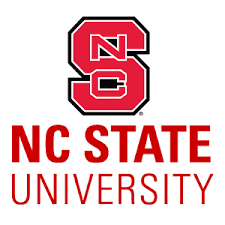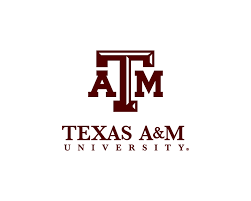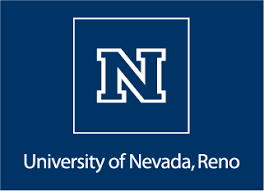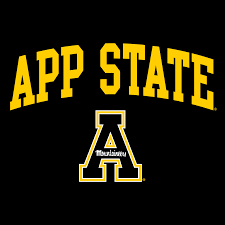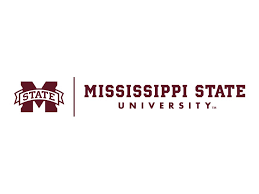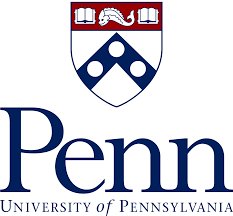Find Your Perfect School
Higher education opens a window of opportunities to those who want to carve out a lucrative career for themselves. For this reason, college students must consider carefully when deciding what college major they should pursue. After all, this can make or break their chances of landing a fulfilling profession!
Indeed, a degree that can usher in a wealth of benefits and handsome compensation is quite the attraction to students. The Bureau of Labor Statistics names the medical field as one of the most lucrative choices. Psychiatrists, surgeons, obstetricians gynecologists, and anesthesiologists are paid handsomely, averaging an annual wage of $239,200.
While it can seem appealing to walk on the traditional path and pursue a degree that will guarantee success, it is still possible to follow majors off the beaten path. Colleges and universities all over the country offer innovative programs that might not be part of the conventional choices but present a chance to explore your passion and realize your full potential.
Innovative academic programs may not be in the same league as traditional academic disciplines. Often, they are unheard of or unfamiliar, but their relevance as a field of study cannot be overlooked. Most of these programs have practical applications that are integral to technological advancement.
What makes a university qualify as “innovative?”
A university is considered innovative when it is willing to take risks and break from traditional approaches by leveraging cutting-edge technologies, embracing new ideas, and creating new academic programs to meet the needs of its students.
An innovative university also encourages collaboration and exploration, encourages experimentation and risk-taking, and provides resources and support for its faculty and students to pursue their ideas.
The Best Colleges Offering Innovative Programs
North Carolina State University
The highly digital world did not manage to put a stop to the continuously thriving paper industry. At North Carolina State University, the Bachelor of Science in Paper Science and Engineering program combines several disciplines, such as chemical engineering, environmental science, and business management.
It is an interesting major that equips students with a comprehensive understanding of the whole process of producing paper and converting any biomass into useful products. The program covers converting trees into everyday products, encompassing shipping and packing materials, household items, and medical supplies.
North Carolina State University has state-of-the-art in-house laboratory equipment like the paper machine to hone their applied skills. The university is the sole academic institution in the continent with in-house equipment to convert biomass materials such as pulp and paper. These materials can range from grass and corn stalks to wood.
Students should not worry about finding a vacant position when they graduate, despite the specialized major. The university’s Office of Career Services invites more than 25 companies to conduct student interviews for co-ops, full-time jobs, and internships every year.
Even better, the companies under the Pulp and Paper Foundation and the alumni and supporters of the program give scholarships worth approximately $300,000 to around 125 undergraduate students.
Some of the courses under the Paper Science Engineering program include:
- Introduction to Computing Environments, Chemistry – A Molecular Science,
- Pulping and Papermaking Technology,
- Organic Chemistry,
- Pulping Process Analysis,
- and Engineering Thermodynamics I, among many others.
This challenging degree offers a wealth of opportunities to graduates, with occupations ranging from process engineers and product development engineers to chemists and quality control supervisors.
Texas A&M University
Poultry production is a vital part of the poultry industry. The latter is robust. According to Statista, it has an inventory of more than 518 million chickens and 229 million turkeys. Students interested in this field can consider earning a Bachelor of Science in Poultry Science offered by Texas A&M University.
This program answers the poultry industry’s need for scientific, technical, and business knowledge that can be instrumental to its success. Students learn about poultry, including nutrition, genetics, physiology, basic sciences, physiology, biotechnology, processing, and marketing.
Their training includes understanding the ins and outs of production units, hatcheries, integrated food mills, research laboratories, and processing plants by acquiring the necessary background, problem-solving and analytical skills, and leadership for these often complex processes.
Students can choose among two specialization options, an emphasis on industry or technology. The technical emphasis consists of advanced study in nutrition, physiology, biochemistry, molecular genetics, process technology, and more.
Not only do graduates of this track find employment in research, public service, or teaching, but they can also meet the requirements for veterinary medicine pre-professional requirements. On the other hand, the industry emphasis can pursue careers in pharmaceutical and equipment companies, trade publications, and universities. They can become corporate managers, quality assurance managers, or technical support in the processing, marketing, and live production departments.
Some of the major coursework for this degree program include:
- Avian Science Lab,
- Poultry Meat Production,
- Breeder and Hatchery Management,
- Poultry Further Processing,
- Poultry Feed Formulation,
- Avian Genetics and Breeding,
- and Animal Waste Management, among others.
Michigan State University
In 1952, Michigan State University became the first university to offer a specialized academic program in Packaging Science. Eventually, the institution has created a dedicated school for this field. A technical and science-based program, the Bachelor of Science in Packaging Science degree fused the different aspects of packaging, encompassing materials and processes through testing and systems development.
Most of the undergraduate courses in this program require laboratories as its integral component. This allows students to acquire hands-on, practical experience.
The core areas of study include technical principles for packaging, design prototyping, sustainability, and environmental impacts, packaging processes and systems, and computer applications. Students also have the option to choose among two concentrations – Packaging Science and Packaging Value Chain Management.
Graduates of this program can pursue rewarding careers in diverse fields, including food and consumer goods, medical, automotive, and research. Some of the occupations for packing include:
- packaging engineer,
- structural designer,
- consumer behavior analyst,
- product tester,
- and food scientists, among others.
DePaul University
DePaul University students can enroll in the Bachelor of Fine Arts program in Costume Technology under its Theater School. They are expected to gain experience in practical production, including drapers, craftspeople, wardrobes, stitchers, and shop assistants.
They are taught to interpret, pattern, and craft costume designs that make up actors’ garments and accessories. Collaboration is part of their training and learning process, along with actors and professional costume shops at the Theatre School.
The coursework for Costume Technology students starts with basic drawing and design and script analysis classes. The second year focuses on patterns, drapes, and general crafts. This is also when they take quarters of customers’ hair and makeup history, costume design, and makeup classes.
Advanced technology classes await students in the last two years of this program. Students of this program are also expected to take 13 courses under the Liberal Studies program, including theatre history, quantitative reasoning, writing, philosophical inquiry, and so much more.
The common career tracks for graduates of Costume Technology include:
- advertising,
- film costuming,
- television costuming,
- fashion design,
- prop management,
- and theatre costuming.
Students can embark on careers in the costume industry that encompass various roles.
University of Nevada
Entertainment Engineering and Design
Another innovative program comes from the University of Nevada. They offer a Bachelor of Science in Entertainment Engineering and Design. In this program, students can choose between two academic tracks – engineering and fine arts.
The program spans computer science, mechanical engineering, electrical and computer engineering, and civil and structural engineering disciplines. Students must complete 127 credit hours, 30 of which are associated with the university’s General Education core.
In this degree, there is an emphasis on the importance of the creative process to the engineered entertainment components in terms of designing and building. They will be taught how to apply high-level scientific and mathematical principles to the processes of designing, manufacturing, and constructing structures, machines, and live systems.
After the program, students are expected to create highly technical designs in demand in the entertainment industry. Their strong engineering background combined with a deep understanding of the relevance of fine arts to entertainment is a great edge to their academic portfolio.
Graduates of the Bachelor of Science in Entertainment Engineering and Design have many opportunities to work in the entertainment industry and production companies. They can be automation technicians, installers, operators, and designers. They can also design structural entertainment systems needed for touring productions, cruise ships, theme parks, and many more.
Appalachian State University
Appalachian State University is known for its array of innovative academic degrees, and the Bachelor of Science in Fermentation Sciences is one of the most popular options. This degree program was designed and launched in 2012 to build an educated and innovative workforce for fermentation-related industries.
Students gain a solid background in chemistry and biology, mostly focusing on food and beverages. It also emphasizes the latter’s biotechnology, sustainability, and business aspects.
There is a strong industry collaboration between the faculty members and local vineyards, wineries, distilleries, and biotechnology businesses. This is integral in providing students with a hands-on experience. They are expected to lead the workforce in fermentation sciences, particularly in developing and managing businesses within the industry.
Many of the Bachelor of Science in Fermentation Sciences program graduates went on to work at prestigious companies in the field, including:
- Novozymes Biotechnology,
- Raffaldini Vineyards,
- the Boston Beer Company,
- Olde Hickory Brewery, and many others.
New Jersey Institute of Technology
We live in a digital age where emerging technologies on artificial intelligence are taking on wider roles. New Jersey Institute of Technology students can earn a Bachelor of Science in Human-Computer Interaction.
This program is a blend of disciplines within information and behavioral science, computing, psychology, and sociology. Students will learn how to harness the design and human use of computing technology to solve real-world problems.
They are equipped with the necessary skills in user experience design, psychology, and ergonomics to build computer applications successfully. They are expected to be knowledgeable in conducting surveys and focus group studies.
This is important in measuring attitudes and behaviors instrumental in design creation, emphasizing outstanding user experience. Some of the most common job occupations for graduates of this program include system administrator, Twilio developer, software engineer, and IT consultant.
Cornell University
Cornell University has a College of Agriculture and Life Sciences, home to one of the country’s most outstanding and internationally recognized viticulture and enology programs. The university offers an undergraduate degree in Viticulture and Enology. This program helps students increase their understanding of science through real-world applications.
They are taught to address the state of New York’s unique challenges, including the soils, pests, cool climate, grape varieties, and markets. The program also aims to provide foundations for growing and winemaking techniques that other regions can use.
In this program, students deal with a wide variety of grapes and the vinification techniques that are important in producing wines in a region with large variability between growing seasons. They have the freedom to choose their electives.
They can take electives under a different school or college, such as concentrating on business and management, by taking electives under the Dyson School of Applied Economics and Management.
Some of the courses under the Viticulture and Enology program include:
- Introduction to Wines and Vines,
- Winemaking Basics for Home Winemakers,
- Principles of Growing Grapes and Making Wines,
- and Wine Culture, among others.
Mississippi State University
Students whose passion lies in flower arrangement and management can check out Mississippi State University’s degree program offering. The bachelor’s program in Flower Management encompasses the sourcing, designing, marketing, distributing, and selling of floricultural products.
Courses in design, horticulture, and business and sciences courses are provided for students enrolled in this program. Students can complete and earn this degree in three years instead of the traditional four years.
The coursework for this program includes:
- Plant Science,
- Floral Design,
- Plant Materials,
- Experimental Chemistry,
- Principle of Macroeconomics,
- Art Appreciation, and many more.
Graduates pursue careers in freelance floral design, retail florist, specialty visual design, wedding and bridal design planning, wholesale floral management, and media design and styling.
University of Maryland
Turf and Golf Course Management
Another innovative academic program comes in Turf and Golf Course Management offered by the University of Maryland. This program has a unique combination of courses, spanning soil and plant science, irrigation and drainage, and business and entrepreneurship. They are taught to combine business and communication skills with science.
The learning outcomes will allow them to provide quality playing surfaces to both professional and recreational golfers. Some of the disciplines involved in this program include soil and plant science, guided irrigation systems, integrated pest management practices, and the maintenance of state-of-the-art equipment.
Courses for this degree program include:
- Introduction to Turfgrass Management,
- Business Management Practices for Turf,
- Agricultural Mathematics,
- Fundamentals of Agricultural Mechanics,
- and Diseases of Ornamentals and Turfgrass, among many others.
Graduates can find careers in more than 16,00 golf courses in the country.
University of Vermont
Data, it seems, governs the modern age of technology. Their impact must be studied and understood. The University of Vermont offers a Bachelor of Science degree program in Data Science. From social media to agriculture, data science has influenced the lives of people every day. This program is a combination of various disciplines, including statistics, mathematics, and computer science.
Students are being prepared to take on careers in big data science and analytics, both of which are rapidly growing and generating huge yet unmet demand. The educational experience in this interdisciplinary degree allows students to gain a broad base of knowledge and skills that many employers pursue.
Students complete a minimum of 120 credits. Some of the coursework includes:
- Applied Probability,
- Discrete Structures,
- Probability Theory,
- Intermediate Programming,
- Algorithm Design and Analysis,
- and Database Systems.
Johns Hopkins University
The state of the environment is a major concern in the current landscape of climate change. At Johns Hopkins University, a bachelor’s degree in Environmental Engineering is offered. The aim is to educate students in harnessing their critical thinking, communication, and collaboration skills in applying fundamental scientific principles of engineering to environmental problems. The Engineering Accreditation Commission accredits the program.
Here, students learn all about the challenges of finding alternative energy sources, solving population growth and air pollution, and remedying the depletion of natural resources. They are expected to master the quantitative, data-driven approaches to research along with cross-disciplinary problem-solving and service to society.
The curriculum requires the completion of 125 credits. Some of the courses include:
- Calculus,
- Environmental Biology and Ecology,
- Engineering Macroeconomics,
- and Statistics and Mechanics of Materials.
University of Pennsylvania
Networked and Social Systems Engineering
The University of Pennsylvania offers a Bachelor of Science in Networked and Social Systems Engineering. The program fully integrates the disciplines integral to designing and analyzing complex networks that are currently reshaping society.
Students are taught how to shape the technologies governing internet-based search and electronic networks, along with financial networks, social networks, and power grid exchanges. They are being prepared to engineer networks for both end-users and investors. Some are expected to lead the creation of policies that regulate networks to protect commercial property and societal good.
Coursework under this program ranges from Introduction to Computer Programming, Foundations of Data Science and Decision Models to Stochastic Systems Analysis and Simulation, and Algorithmic Game Theory. There are five concentrations in Data Science, namely:
- Economics,
- Networked Market,
- Networked and Cloud Services,
- Technology and Society,
- and Theory of Networks and Dynamics.
Brown University
Brown University is one of the higher learning institutions offering an innovative academic program in Cognitive Neuroscience. This field studies the higher cognitive functions in humans, along with their underlying neural bases. The program heavily draws from different disciplines, including psychology, cognitive science, neuroscience, and linguistics.
Students can either choose to follow the behavioral/experimental track or the computational/modeling track. All the same, the end goal is to understand the nature of cognition from a neural perspective. Students are required to complete courses on foundations, systems-level, and integrative aspects of neuroscience. They are also expected to complete and comply with laboratory and elective courses.
Graduates are expected to develop competence in the foundational and integrative aspects of cognitive neuroscience and apply experimental methods relevant to the said field, among others. Some of the core courses included are:
- Qualitative Methods,
- Statistical Methods,
- Principles of Neurobiology,
- and Cognitive Neuropsychology.
Arizona State University
Aeronautical Management Technology
Another innovative academic offering comes from Arizona State University. Its Bachelor of Science in Aeronautical Management Technology equips students with fundamental knowledge and skills that will help them attain leadership positions in the aviation industry. This includes managing air carriers or airports, airport planning, and general aviation operations.
Once completed, this degree is expected to help students land jobs as air carrier managers, airport managers, aviation consulting, general aviation operations managers, and other governmental positions in the Federal Aviation Administration, Department of Transportation, and National Transportation Safety Board.
Students are expected to complete a total of 120 credit hours. Some of the courses include:
- Promotion of the Enterprise,
- Aviation Professional,
- Air Transportation,
- Leading the Enterprise,
- Aircraft Design and Logistics Management,
- Aviation Law and Regulations, and many others.

What are the Benefits of Pursuing an Innovative Academic Program?
- It prepares students for a better world.
Innovative academic programs have real-world implications. These programs steer clear from the beaten path, which means students will have more significant opportunities to realize their true potential. Innovative programs are quite specific, so students will delve deep into their chosen field of study and strengthen their expertise.
- It helps students get ahead of the competition.
The real world is pretty competitive. Earning the traditional major that everyone is pursuing translates to a tough job market. You obtain a unique set of skills by taking innovative courses and, in the process, keep your edge over your fellow graduates. You will likely work in a highly specialized, growing, and exciting field.
- It allows students to pursue their passion.
Most students would instead stick to the conventional or more accessible degrees and minimize the risks of failing the more challenging choices. If you thirst for new knowledge, turning to innovative degree programs can give you that satisfaction.
Why should colleges offer innovative and technologically advanced degree programs?
Colleges should offer innovative and technologically advanced degree programs because these programs can provide students with the skills they need to be successful in the ever-changing job market. The world is becoming increasingly digital, so students need to be able to use the latest technology to stay competitive in the job market.
With these technologically advanced programs, students can gain the knowledge and skills they need to stay ahead of the curve and be successful. Additionally, these degree programs can allow students to explore new career paths and gain specialized knowledge in an area that may be of interest to them.




